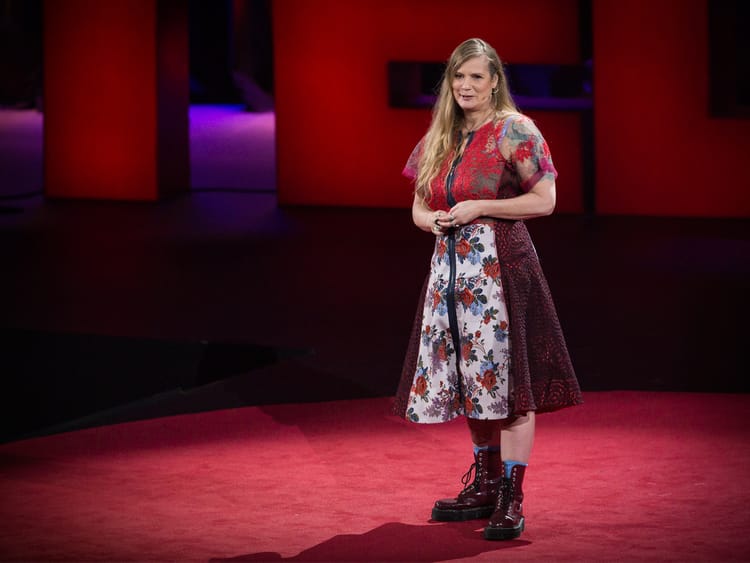“The Beauty of Being a Misfit” by Lidia Yuknavitch
• public
Table of contents
Yuknavitch celebrates the strength in embracing our uniqueness and finding beauty in being different, reminding us that it is through our perceived "misfit" status that we can truly shine.
For Key Ideas, Questions and Quotes from this talk, you can scroll below.
Lidia Yuknavitch gave this speech at the TED Conference. All rights to the speech and the video above belong to TED.
About Lidia Yuknavitch
Lidia Yuknavitch is an American writer, teacher and editor based in Oregon. She is the author of the memoir The Chronology of Water, and the novels The Small Backs of Children, Dora: A Headcase, and The Book of Joan. (Source: Wikipedia)
Key Ideas From Talk
Have you ever felt like you don't deserve to be happy, that you don't deserve good things that could happen to you, or that you are worthless? Have you ever held yourself back because you believed these thoughts? Have you ever treated yourself so poorly?
I hope not. But if you have, these questions may have touched you. Lidia believed in these thoughts and inflicted them upon herself. Yet, she kept on living and shared her story with everyone, just like she did in her Ted talk.
Lidia's talk is one of the most impactful talks I have ever heard. You can only understand why by watching it. However, I can share a few insight from this talk:
- Embrace your own story: Yuknavitch encourages embracing one's own narrative, even if it doesn't fit societal norms or expectations. Embracing your story means accepting and celebrating your experiences, struggles, and triumphs, regardless of how they align with traditional notions of success.
- Find strength in vulnerability: Yuknavitch highlights the power of vulnerability and how it can be a source of strength. By embracing our vulnerabilities and sharing our authentic selves with others, we can connect on a deeper level and find a sense of belonging.
- Rewrite your own narrative: Rather than conforming to predetermined narratives imposed by society, Yuknavitch urges individuals to rewrite their own stories. This involves challenging societal expectations and creating a narrative that aligns with their true selves and aspirations.
- Embrace the misfit within: Yuknavitch celebrates the beauty of being a misfit and encourages individuals to embrace their unique qualities and perspectives. Rather than trying to fit into predefined molds, she encourages people to cultivate their individuality and find their own place in the world.
- Transform pain into art and resilience: Yuknavitch emphasizes the transformative power of art and creativity in navigating pain and adversity. By channeling their experiences into artistic expression, individuals can find healing, resilience, and a way to connect with others who have gone through similar struggles.
Questions to Ask Ourselves
- How comfortable am I with embracing my own unique story, even if it differs from societal expectations? How does this affect my sense of identity and belonging?
- In what ways do I allow myself to be vulnerable and authentically share my true self with others? How does this impact my relationships and personal growth?
- Are there aspects of my narrative or life story that I feel compelled to rewrite or challenge in order to align with my authentic self? How can I start reshaping my narrative to reflect my true desires and aspirations?
- How do I currently embrace and celebrate my unique qualities, perspectives, and quirks? How can I cultivate a greater sense of self-acceptance and find my own place in the world?
- Do I utilize creative outlets or forms of self-expression to transform my pain, challenges, or adversities into sources of resilience and growth? If not, how can I explore and incorporate more creative practices to facilitate healing and connection with others who have similar experiences?
Notes From Talk
Related List and Guide
This talk is a part of following list: "Talks That Changed My Perspective".
